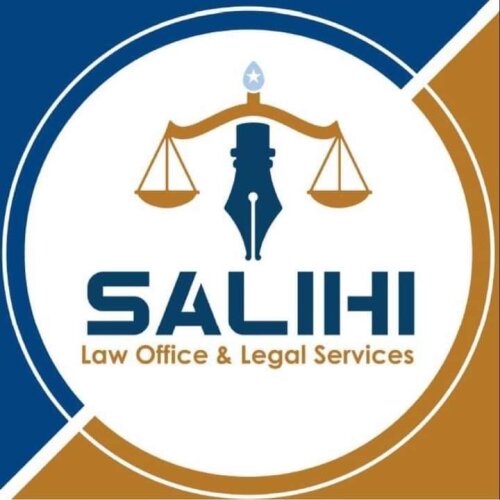Best Franchising Lawyers in Somalia
Share your needs with us, get contacted by law firms.
Free. Takes 2 min.
Or refine your search by selecting a city:
List of the best lawyers in Somalia
About Franchising Law in Somalia
Franchising is a business model that allows a franchisee to operate a business using the branding, operational models, and intellectual property of an established brand. While franchising offers opportunities for business expansion and entrepreneurship in Somalia, it is subject to legal considerations that ensure the rights and obligations of both franchisor and franchisee are protected. In Somalia, franchising is an evolving field, with local laws adapting to accommodate this increasingly popular business model. Understanding franchising law in Somalia is essential for anyone considering entering into a franchise agreement in the country.
Why You May Need a Lawyer
There are several scenarios where seeking legal assistance can be beneficial in franchising. A lawyer can help in negotiating franchise agreements, ensuring compliance with local laws, resolving disputes, understanding financial obligations, protecting intellectual property, and advising on exit strategies. Legal expertise is crucial for both franchisors looking to establish franchises in Somalia and franchisees who want to ensure their rights and interests are safeguarded.
Local Laws Overview
Local laws in Somalia relevant to franchising encompass contract law, commercial law, taxation, and intellectual property protection. Key aspects include the enforcement of franchise agreements, regulations concerning business operations and sales practices, and the protection of trademarks and other intellectual properties. Somali commercial law is particularly relevant, as it governs how businesses are registered and operated. Additionally, compliance with taxation and licensing laws is critical to avoid legal and financial penalties.
Frequently Asked Questions
1. What is a franchise agreement?
A franchise agreement is a legal contract between a franchisor and a franchisee that outlines the terms and conditions under which the franchisee is allowed to operate the franchisor's business model.
2. Do I need a lawyer to enter a franchise agreement in Somalia?
While it is not legally required, having a lawyer can help ensure that you fully understand the terms and obligations within the agreement and protect your interests.
3. What are the typical fees involved in franchising in Somalia?
Franchising fees often include an initial franchise fee, ongoing royalties, marketing fees, and any other costs associated with training and supplies. The specific amounts can vary widely depending on the franchisor.
4. How is intellectual property protected in Somali franchising?
Intellectual property protection is essential to ensure that trademarks and business methods are not exploited without permission. It typically involves registering trademarks and implementing clauses in franchise agreements that protect proprietary information.
5. What should I consider before signing a franchise agreement?
Consider factors such as the reputation of the franchisor, the level of support and training provided, financial obligations, and the legal ramifications of the agreement term and conditions.
6. Can franchise agreements be terminated?
Yes, they can be terminated under certain conditions outlined in the agreement. These may include breach of contract, insolvency, or mutual agreement to end the contract.
7. What are my rights as a franchisee in Somalia?
Rights typically include the use of the franchisor's brand and system, access to training and support, and protection from unfair termination as stipulated in the agreement.
8. How is a franchise different from a license?
A franchise involves more control and ongoing support from the franchisor, whereas a licensing agreement typically only grants permission to use certain intellectual property.
9. What happens if there is a dispute between franchisor and franchisee?
Disputes are generally resolved through negotiation, mediation, or arbitration as per the terms of the franchise agreement. Legal action can be pursued if these methods fail.
10. Is franchising suitable for every business in Somalia?
Not all businesses are suited to franchising. Evaluating market potential, business viability, and the robustness of your business model is essential before considering franchising.
Additional Resources
Those seeking more information on franchising in Somalia can reach out to local business chambers, consult the Federal Ministry of Commerce and Industry, or explore resources from international franchise associations. These bodies can provide valuable insights and guidance on best practices and legal requirements.
Next Steps
If you need legal assistance in franchising, consider consulting with a lawyer specializing in commercial and contract law. Identify professionals with experience in franchising to ensure they understand the complexities involved. You may also want to attend workshops or seminars for further education on franchising laws and business strategies in Somalia.
Lawzana helps you find the best lawyers and law firms in Somalia through a curated and pre-screened list of qualified legal professionals. Our platform offers rankings and detailed profiles of attorneys and law firms, allowing you to compare based on practice areas, including Franchising, experience, and client feedback.
Each profile includes a description of the firm's areas of practice, client reviews, team members and partners, year of establishment, spoken languages, office locations, contact information, social media presence, and any published articles or resources. Most firms on our platform speak English and are experienced in both local and international legal matters.
Get a quote from top-rated law firms in Somalia — quickly, securely, and without unnecessary hassle.
Disclaimer:
The information provided on this page is for general informational purposes only and does not constitute legal advice. While we strive to ensure the accuracy and relevance of the content, legal information may change over time, and interpretations of the law can vary. You should always consult with a qualified legal professional for advice specific to your situation.
We disclaim all liability for actions taken or not taken based on the content of this page. If you believe any information is incorrect or outdated, please contact us, and we will review and update it where appropriate.
Browse franchising law firms by city in Somalia
Refine your search by selecting a city.









